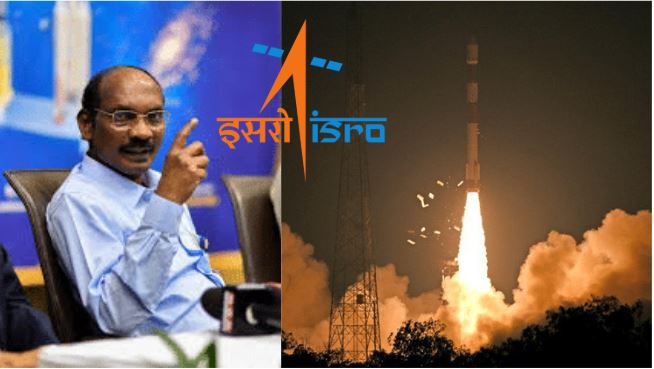Amidst the Coronavirus outbreak, Prime Minister Modi has unleashed a wave of reforms across all sectors of the Indian economy. And now India is making the big leap in the space sector too, by opening up the prolific sector for private players and investors. On Wednesday, the government even unveiled a new organisation- Indian National Space Promotion and Authorisation Centre (IN-SPACe) to ensure greater participation of the private sector.
Indian Space Research Organisation (ISRO) chairman K Sivan has said that this a part of reforms to open up the space sector and make space-based applications and services accessible to everyone.
Only last month, the Union Finance Minister, Nirmala Sitharaman had announced that the private sector will be given a bigger role in the country’s Space sector, including in satellites, launches and space-based services.
With the creation of IN-SPACe, the government has lived upto its promise of creating a level-playing field in the crucial sector. In the next six months, this newly created body is going to examine the needs of the private sector in terms of educational and research institutions, and ways to explore these requirements in consultation with the ISRO.
It is a historic change that will put India’s Space race in a different league altogether. Around the world, the private players are playing a greater role in the Space programmes. In the United States, Elon Musk’s SpaceX has made massive strides and only last month its Crew Dragon capsule carried two NASA astronauts into Space. This was for the first time that a private company put human beings into orbit.
Blue Origin, an aerospace manufacturer and sub-orbital spaceflight services owned by Amazon founder Jeff Bezos, too is eyeing a major lunar mission. In fact, NASA has selected Blue Origin, Dynetics and SpaceX for development of human-rated lunar landers. Recently, NASA Administrator Jim Bridenstine said, “These are three companies that we believe have a lot of capability that are going to enable us to get to the moon.”
In India, however, the role of the private sector has been restricted to manufacturing and fabrication of rockets and satellites. 95 per cent of the Space exploration market relates to satellite-based services and ground-based systems. Consequently, the Indian industry contributes only three per cent to the growing Space economy.
In India, the problem of the Space market is not that of demand, but that of supply. In fact, the demand for space-based applications and services is growing rapidly, partly because the ISRO has made rapid strides. It is one of the few PSUs that has lived upto expectations with cost-effective lunar and mars missions, development of Anti-Satellite technology (ASAT) and Project NETRA for enhancing India’s space security.
At the same time, ISRO has also managed to launch a number of foreign satellites bringing thousands of crores of revenue to the government.
But how much burden will the ISRO handle, Sivan says the ISRO will have to grow ten times the current level if it has to meet the growing demand. At the same time, ISRO remains a primarily scientific, and not commercial organisation. It has plans- big ones like sending astronauts into space through the Gaganyaan, a lunar mission, a mission to observe the Sun and even a human landing on the Moon.
ISRO should not be made to play both a commercial and a strategic role. The commercial part of India’s space programme can be taken care of by private players, though they will be allowed to work on advanced technologies also. This is why Sivan told The Hindu, “Nothing will go out of ISRO. In fact, we will enable private players also to do their job. ISRO has its own agenda of developing advanced technologies in satellites and launch vehicles. Routine aspects will be given out to IN-SPACe. Earth Observation also will come under it. Advanced activities will be done by ISRO.”
Private sector will thus be provided all facilities, including satellite launch vehicles. Ultimately, the private players will also be allowed to build their own launchpads at the Sriharikota launch centre. ISRO will provide necessary assets including land.
ISRO has built a massive space industry for India, and with the entry of ambitious and willing private players, India wants to lead the space race.
